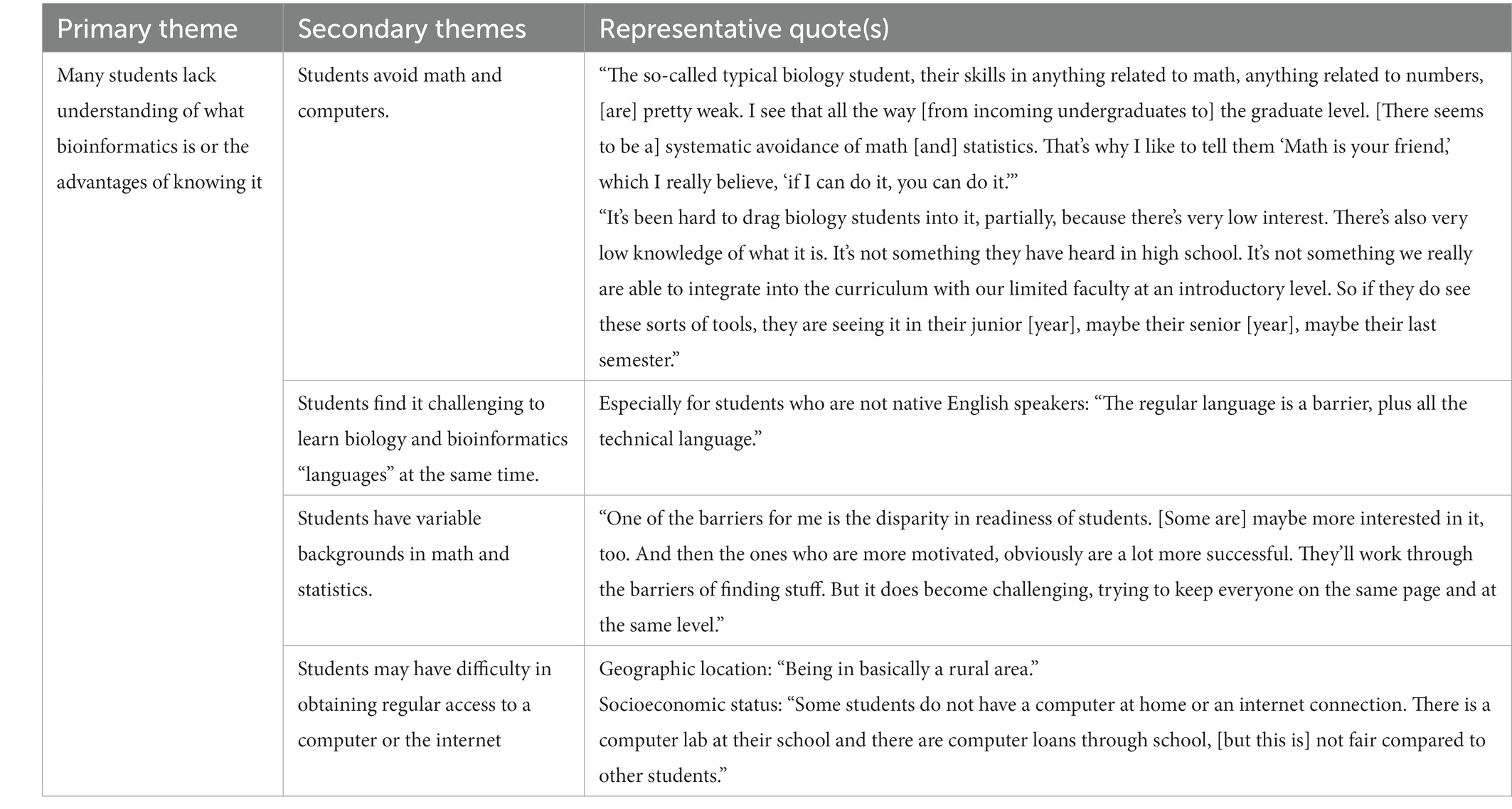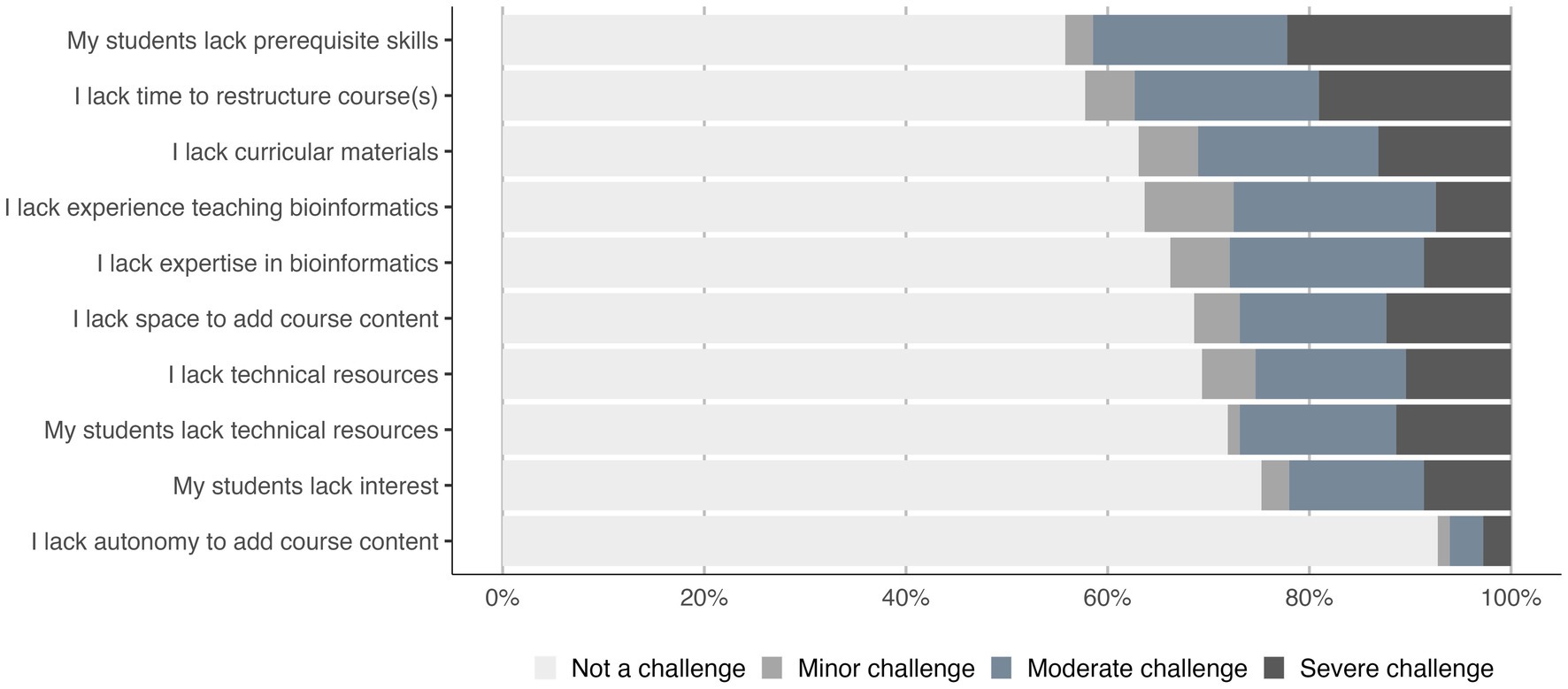Bioinformatics Tutor for Dummies
Bioinformatics Tutor for Dummies
Blog Article
Indicators on Bioinformatics Tutor You Should Know
Table of ContentsSome Known Factual Statements About Bioinformatics Tutor Bioinformatics Tutor Can Be Fun For EveryoneLittle Known Questions About Bioinformatics Tutor.The Greatest Guide To Bioinformatics TutorThe Of Bioinformatics Tutor
Of the overall individuals entailed in the training, 80% were pupils from public college establishments, while the staying 20% originated from personal establishments. To get approved for a certificate of participation, trainees were needed to participate in at least 90% of the complete training hours. As an outcome of this demand, an excellent 95% of the individuals effectively acquired their certifications, having not only fulfilled the minimum participation requirements yet also completed all assigned tasks throughout the training.
During the height of the COVID-19 pandemic, especially between June and August 2020, the job team was charged with arranging specialized training in bioinformatics. This training was especially targeted at students from the research study group Center for Research in Applied Computer at the Federal College of Pará (UFRA) The adjustment to remote knowing systems as a result of the pandemic produced an opportunity to explore brand-new teaching methodologies and electronic devices that boosted both reach and efficiency.
To reply to the growing demand in the computer and life sciences areas, a sophisticated training course was presented in 2020 entitled Intro to Artificial intelligence. This program was developed to supply an available yet thorough summary of Artificial Intelligence techniques, especially as used in bioinformatics. The program was accomplished over 3 months, from October to December 2020, and was supplied completely online through the Google Meet platform. This online style enabled involvement from pupils throughout Brazil, a lot of whom might not have had the chance to go to in-person sessions.
6 Simple Techniques For Bioinformatics Tutor
A remarkable feature of this program was its emphasis on hands-on knowing. About 50% of the complete training hours were committed to useful tasks where pupils constructed intelligent designs and applications in an array of scientific domain names, including genes, molecular biology, and ecological information evaluation. Widely used structures and devices such as Spyder, Google Colab, Jupyter Notebooks, and Orange were integrated right into the coursework. These platforms enabled pupils to participate in real-time information adjustment, model training, and formula experimentation.
The course drew in 80 participants in total. Sixty of them were connected with different greater education and learning organizations in the state of Pará, while the continuing to be twenty originated from establishments situated in five various other Brazilian states. This wide geographical representation highlighted the national rate of interest in bioinformatics and the expanding need for specialized abilities in this field. By presenting Expert system in a pertinent and useful context, the effort offered to connect the void between concept and real-world application, providing students with a strong foundation for future research study or employment in the field.
The training initiative formed part of a wider scholastic outreach initiative referred to as the Bioinformatics when driving job. This task has, for many years, introduced loads of trainees click site to the globe of bioinformatics and computational biology. The occasions held under this umbrella effort have occurred across numerous regions and years, as summed up in Table 1 (List of events, locations, years, and complete numbers of trainees and instructors)
Several of these teams, at first brought with each other by their involvement in training events, have actually since gone on to generate independent clinical research study in cooperation with neighborhood scholastic institutions. The training not just promoted scientific reasoning within the context of bioinformatics but also sparked collaborative partnerships that expanded past the training environment.
5 Simple Techniques For Bioinformatics Tutor
The same team, leaving out IH and RR, likewise acted as tutors for the practical training components. Financing for the project was given with the grant 88887.200562/ 2018-00 from CAPES.
The Federal University of Pará's Workplace of Study (PROPESP/UFPA) likewise gave financial backing, particularly for the production of the last manuscript. The authors state no commercial or financial problems of passion that can have influenced the research. All analyses and viewpoints shared in this post are entirely those of the writers and do not always reflect those of their respective institutions, the publisher, editors, or customers included in the magazine process.

The Main Principles Of Bioinformatics Tutor
From an instructional perspective, the training approach utilized in the training was purposefully interactive. Courses were performed in a way that encouraged trainee involvement and discussion, surpassing rote memorization to explore how concepts are developed, applied in life, and examined in scholastic setups. The instructional philosophy concentrated on nurturing both solid and having a hard time pupils, providing individualized assistance, and building self-confidence with sustained mentorship and patience.

Each group, being composed of roughly 36 individuals, was supported by three coaches-- the majority of whom were postdoctoral scientists with specialized know-how. These mentors not only assisted develop the team jobs yet also facilitated their execution, making sure that each study concern was both appropriately tough and appropriate. The goal was to provide a naturally practical context that individuals can discover through flexible objectives and accessibility to curated datasets.
For extra insights into the methodology and outcomes of this project-based discovering method, readers are routed to S1 Text, that includes in-depth summaries of the pedagogical framework, analysis methods, and project motifs used in the training sessions.
The 20-Second Trick For Bioinformatics Tutor
Of the total participants included in the training, 80% were pupils from public greater education institutions, while the continuing to be 20% came from Learn More Here personal institutions. To certify for a certification of participation, students were needed to participate in at least 90% of the complete training hours. Notably, beyond the pupils that registered in the training sessions, 7 experienced trainers took part in supplying the training courses, while 3 specialized research study teachers coordinated the general training process. About 50% of the total training hours were devoted to functional activities where pupils constructed smart designs and applications in an array of clinical domains, including genes, molecular biology, and environmental data analysis. The training not only fostered scientific reasoning within the context of bioinformatics however likewise triggered collective partnerships that prolonged beyond the training atmosphere.
Report this page